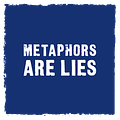The Athletic has an interesting little article about how Kristaps Porziņģis has reinvented himself through the use of analytics. The article, I think, is a good look at how numbers and data can sometimes hold us back from understanding.
KP (because I am not going to try and type his name out every time, my Polish ancestry be damned. And yes, I know that’s not Polish. But it’s Slavic enough that the ghost of my ancestors, not to mention my mom, are already yelling at me for not attempting it.) was a disappointment bordering on failure in his early career. He certainly did not help as much as he hurt in his stint for the Dallas Mavericks. Teams knew how to neutralize him and once they applied that tactic the Mavericks were, in the words of the analytics expert for the Dallas Mavericks, “fucked”.
KP, because he was a professional athlete and thus one of the most insanely competitive human beings alive, worked to correct his deficiencies. For most players, that means trying to improve specific items he did poorly. And there was some of that for KP. However, what he and his coaches did at his next stop was to look at the data around his entire game, identify the pieces that worked well together and those that did not. They then shaped his game around those pieces that worked well, down to the tiniest details. He stopped trying to add muscle, as that decreased his agility, for example. He focused on limiting his dribbles in the post as his ball control was poor. He stopped trying fade-aways, as that shot never improved for him. All little things, but all working together to make him better. In a couple of years, he went from one of the least efficient post players to one of the most.
Nice story, then, and good for him and his coaches. But what has that to do with anything not related to the NBA? A lot, I think, summed up by the Maverick’s analytics guru. In the article, he admits that they didn’t try hard enough to improve KP’s play. That they, in his words, “Where we really failed I think in some ways was not having the coaching staff, not working on making him a more efficient post-up player … Maybe there’s this idea that, and I think I may be guilty of this, like, ‘This is what a player is because this is what the numbers say.’ But it’s not necessarily what he can be going forward.“ That attitude, that something is what the numbers say it is always and forever, is the dark secret damage of this era of analytics uber ales.
We see this in most areas of our lives. I already covered it in sports, but we see it in politics, for example. Minds, we are told, cannot be changed. People are who they are, and their tribal allegiance is everything. Persuasion is a mug’s game. If you try an incremental change and it fails to move the needle, then you have proven that no number of changes or any sized change will ever move the needle. Except, of course, there are models of persuasion that do work.
Art, at the commercial level, is run today by algorithms largely. Companies decided what lives or dies based on numbers hardly anyone sees or understands and approve projects based on their connection to existing intellectual property and how well a script adheres to standard beats and structures. Except Psycho killed its main character off 45 minutes into the moves (spoiler, I guess. But c’mon, man.). And Rocky’s inciting incident happens pages and pages deep in the script, well past when the formula says it should. And Memento runs backwards. None of those movies adhered to formulas and they were all exceptional.
The map is not the terrain is a saying that all people who work with data models are taught very early in their lessons. But I don’t think that enough take it to heart. Data is just one piece of information, one indicator of how things are at the moment the data is collected. Data can reveal truths but only if it is used as the light in the lamppost — for illumination — and not as the drunk uses the lamppost itself — for support. We live in world where far too often data is used as the drunk uses the lamppost — for support, not illumination.
Data is a tool, one among many. It can be used to help, to augment expertise and inform choices and decisions. It can also be used to hinder, to argue that things are just the way they are. But life is change and things do not have to be the way they have always been. Indeed, things rarely stay the way they have always been. In this life, you can be KP who uses data to help his coaches mold himself into the best player he can possible be. Or you can be the Dallas Mavericks, who traded away a man with the potential to be one of the game’s most efficient post players.
I know who I’d want to be. Unfortunately, too many of our decisions makers in too many areas seem to reside in metaphorical Dallas.


